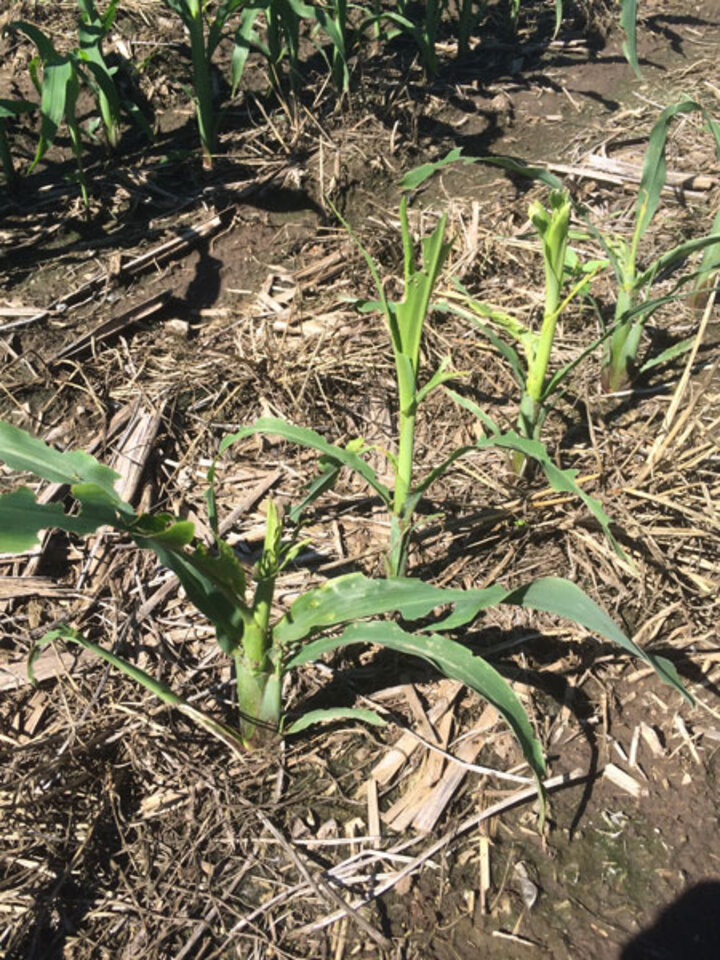Q&A on Armyworms
June 19, 2015
Can armyworms move to adjacent crops from smooth brome and other cool season grasses?
Armyworms have been known to move from cool season grasses into nearby corn and strip a few rows down to the stalk in fence rows. While this is rare, it does occur in years with high armyworm numbers. If growers don't spray brome where armyworms are present, they should keep an eye on bordering crop fields for armyworms. (Read more about identifying and managing armyworms in smooth brome.)

Are there any reports of damage to other crops in Nebraska in 2015?
Yes, there have been reports of armyworms damaging corn in southeast Nebraska this spring (Figure 1), often in fields adjacent to pasture grasses. Iowa State University recently reported similar occurrences, referencing cover crops as the initial food source for the armyworms.
See ISU's Integrated Crop Management News for additional information including economic thresholds and insecticide options in corn.
Will Bt corn borer trait stop them from eating corn?
While Bt provides control of various caterpillars, it doesn't kill them after one bite or cause them to immediately stop feeding. Caterpillar death from eating Bt corn will take several days after ingestion. Smaller caterpillars are more susceptible than larger caterpillars.
Should we be concerned after this generation of armyworms?
A big first generation population early or even large light trap counts does not guarantee that we will have a problem later on, so insurance treatments for the second generation are not recommended.
Parasites usually catch up late in the game. If 10%-20% of the armyworms are parasitized — you can see the eggs behind the armyworm head — the problem will most likely be taken care of naturally.
Bob Wright, Extension Entomologist
Keith Jarvi, Extension Educator
Keith Glewen, Extension Educator
Michael Rethwisch, Extension Educator
